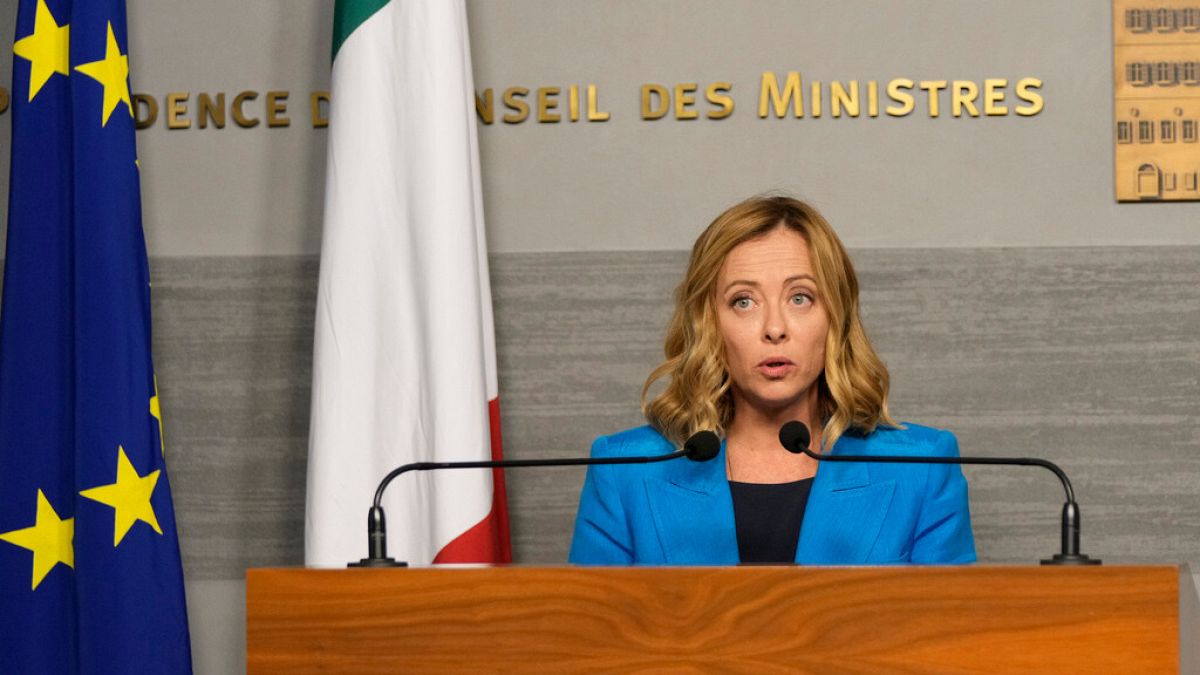Italy’s cabinet recently passed a new decree that would allow the government to update the list of safe countries from which migrants can arrive, removing legal obstacles that were hindering the implementation of a controversial migration deal with Albania. The deal, which was agreed upon between Italy and Albania, aimed to limit migrant arrivals, but faced challenges when a court in Rome raised doubts about its legality and feasibility. The court argued that migrants from Bangladesh and Egypt were being sent to an unsafe location, putting them at risk of violence if repatriated to their countries of origin. This decision prompted Italian Prime Minister Giorgia Meloni to convene her cabinet to find a legislative solution to the issue.
The Italian government, led by Meloni and her party, believed that the government should have the authority to determine which countries are safe for migrants to be sent to, rather than leaving that decision in the hands of the judiciary. In response to the court’s ruling, the Ministry of Foreign Affairs, the Ministry of the Interior, and the Ministry of Justice worked together to draft new legislation that would allow for the list of safe countries to be updated every six months. This move was seen as an attempt to increase government powers in the decision-making process regarding migrant arrivals and destinations. The far-right Brother’s of Italy party, led by Meloni, emphasized that defining a safe country is a political decision that should fall under the government’s jurisdiction within the framework of international law.
The court’s ruling in Rome upheld a previous decision by the European Court of Justice, which stated that the government should have the final say in determining safe countries for migrants to be sent to. This decision was met with criticism by some members of the Italian government, who accused the judiciary of bias and politicization. Meloni’s party viewed the court’s ruling as an attempt to undermine Italy’s borders and sovereignty, refusing to accept the court’s decision to return the migrants. The controversial migration deal between Italy and Albania, which established offshore migrant processing centers in Shengjin, has attracted interest from other European countries, despite Albania’s insistence that the agreement is exclusive to Italy. The European Commission President, Ursula von der Leyen, expressed potential support for the scheme, suggesting that EU member states should explore innovative solutions to tackle migration issues.
However, not everyone has welcomed the migration deal and the recent court ruling. The Italian opposition, including the Democratic Party, the Five Star Movement, and the League of Greens and Leftists, have criticized the scheme as being against the law and called for it to be scrapped. The opposition parties argued that the court’s decision highlighted the illegality of the deal and raised concerns about the treatment of migrants, calling for a more humane and legal approach to address migration challenges. The situation has highlighted the ongoing tensions between the Italian government and the judiciary, as well as differing opinions within the country regarding immigration policies and enforcement.
Overall, the recent developments in Italy regarding the migration deal with Albania showcase the complexities and challenges associated with managing and implementing migration policies. The court’s ruling, the government’s response, and the reactions from various political parties reflect the broader debate within Italy and Europe about how to address migration issues effectively and legally. The ongoing discussions and debates surrounding the deal and its implications underscore the need for a comprehensive and coordinated approach to immigration that balances security concerns with humanitarian considerations. As the situation continues to evolve, it remains to be seen how Italy and other European countries will navigate the complex and contentious issue of migration in the future.










